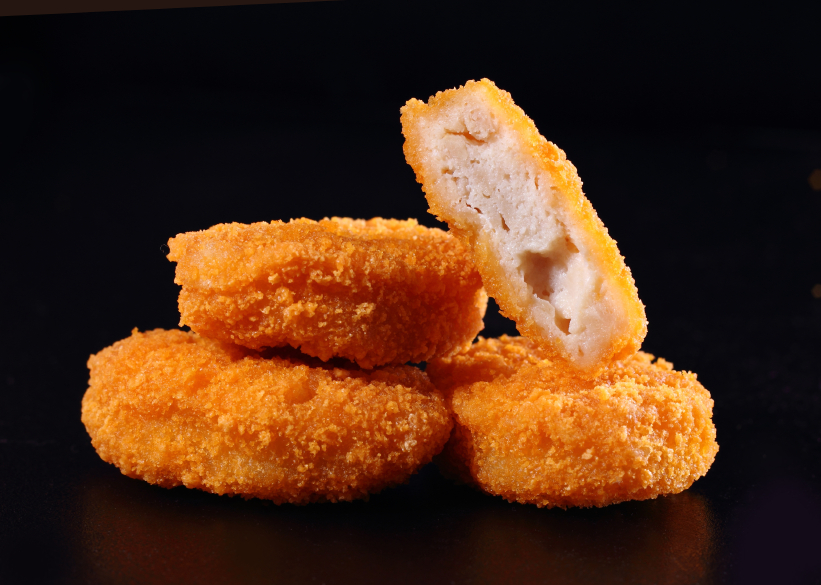Ultra-Processed Foods & Food Corporations
Ultra-processed foods (UPFs) are industrially manufactured packaged and fast-foods that contain reconstituted ingredients and additives, and are primarily produced by large food corporations. High proportions of UPFs in the diet have been associated with a range of poor health outcomes.
This series of projects and publications examines:
- the nature of UPF products;
- the commercial and corporate drivers of UPF production and consumption;
- the market, techno-scientific and political power of UPF corporations;
- policy proposals for reducing UPF consumption and regulating UPF corporations.

Grants
Bloomberg Foundation Grant (2023-24)
'Lancet Series on Ultra-Processed Foods and Human Health'
- Chief Investigators: Carlos Monteiro (University of Sao Paulo, Brazil), Gyorgy Scrinis, Phil Baker (Deakin University)
- Project Description: To support the series of three articles commissioned by The Lancet journal on ‘Ultra-Processed Foods and Human Health.’ The three articles will cover the scientific evidence, the politics, and the policy recommendations for reducing UPF consumption.
FAPESP Grant, Sao Paulo Research Foundation, Brazil (2016-2021)
‘Ultra-processed Food Consumption, Nutritional Profile of Diet and Obesity in Seven Countries’
- Chief Investigators: Carlos Monteiro (University of Sao Paulo, Brazil), De Barros, A., Martins, A., Horta, B., Corvalan, C., Azeredo, C., Millett, C., Canella, D., Gigante, D., Parra, D., Scrinis, G., Santos, I., Moubarac, J.C., Batal, M., Reyes, M., Assuncao, M., Benicio, M., Claro, F., Uauy, R., De Vogli, R.
- Project Description: This research project will study of food consumption patterns and health outcomes in seven countries: Brazil, Chile, Columbia, the United States, Canada, the UK and Australia.
Publications
- Scrinis, G., & Monteiro, C. (2022) From ultra-processed foods to ultra-processed dietary patterns. Nature Food, 3(9), 671-673.
- Scrinis, G. (2020) ‘Ultra-Processed Foods and the Corporate Capture of Nutrition’ BMJ, 371.
- Scrinis, G. (2020) ‘Food manufacturing: processed foods and big food corporations’, in M. Lawrence & S. Friel (eds) Healthy and Sustainable Food Systems, London: Routledge, p. 82-92.
- Scrinis, G. & Monteiro, C. A. (2018) Ultra-processed foods and the limits of product reformulation. Public Health Nutrition, 21 (1) 247-252.
- Monteiro, C. A., Lawrence, M., Millett, C., Nestle, M., Popkin, B. M., Scrinis, G., & Swinburn, B. (2021). The need to reshape global food processing: a call to the United Nations Food Systems Summit. BMJ Global Health, 6(7), e006885.
- Seferidi P, Scrinis G, Huybrechts I, et al. The neglected environmental impacts of ultra-processed foods. The Lancet Planetary Health 2020;4(10).
- Machado, P., Cediel, G., Woods, J., Baker, P., Dickie, S., Gomes, F.S., Scrinis, G. and Lawrence, M., (2022) Evaluating intake levels of nutrients linked to non-communicable diseases in Australia using the novel combination of food processing and nutrient profiling metrics of the PAHO Nutrient Profile Model. European Journal of Nutrition, 61(4), pp.1801-1812.
- Wood, B., Baker, P., Scrinis, G., McCoy, D., Williams, O., & Sacks, G. (2021). Maximising the wealth of few at the expense of the health of many: a public health analysis of market power and corporate wealth and income distribution in the global soft drink market. Globalization and Health, 17(1), 1-17.
- Baker, P., Machado, P., Santos, T., Sievert, K., Backholer, K., Hadjikakou, M., Russell, C., Huse, O., Bell, C., Scrinis, G., Worsley, A, Friel, S. & Lawrence, M. (2020) ‘Ultra‐processed foods and the nutrition transition: Global, regional and national trends, food systems transformations and political economy drivers’, Obesity Reviews, 21(12).
- Machado, P., Martinez, Levy, R., Louzada, M. Rangan, A., Woods, J., Gill, T., Scrinis, G. & Monteiro, C (2020) ‘Ultra-processed food consumption and obesity in the Australian adult population’, Nutrition & Diabetes.
- Machado, P., Martinez, Levy, R., Louzada, M. Rangan, A., Woods, J., Gill, T., Scrinis, G. & Monteiro, C., (2020) ‘Ultra-processed food consumption drives excessive free sugars intake among all age groups in Australia’, European Journal of Clinical Nutrition, 59.
- Lacy-Nichols, J., Scrinis, G. & Carey, R. (2020) The evolution of Coca-Cola Australia’s soft drink reformulation strategy 2003–2017: A thematic analysis of corporate documents, Food Policy, 90.
- Lacy-Nichols, J., Scrinis, G. & Carey, R. (2020) The politics of voluntary self-regulation: insights from the development and promotion of the Australian Beverages Council’s ‘Commitment’, Public Health Nutrition, 23(3).
- Machado, P., Martinez, Levy, R., Zhixian, S., Rangan, A., Woods, J., Gill, T., Scrinis, G. & Monteiro, C. (2019)‘Ultra-processed foods and recommended intake levels of nutrients linked to non-communicable diseases in Australia: evidence from a nationally representative cross-sectional study’, BMJ Open, 9(8).